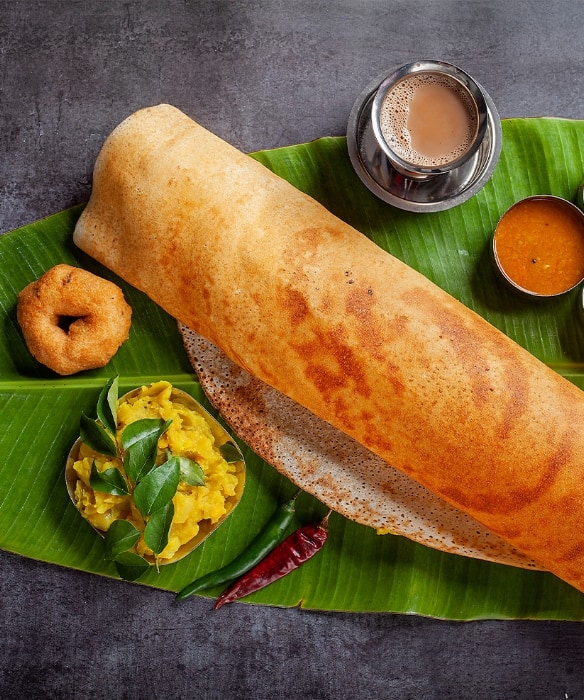Stay logged in to proceed with bookings, orders and offers.
On changing the terminal, you will loose items in your cart. Are you sure you want to change your terminal?
From Ethiopian origins to Indian delights, the history of coffee brews with rich flavours.
For me, sipping on a steaming cup of coffee has always been one of life's simple pleasures. Coffee, with its intoxicating aroma and comforting taste, has a history that intertwines cultures and spans continents. Originating in the ancient highlands of Ethiopia, the story of coffee is as captivating as the drink itself. This beloved beverage's journey from the hills of Ethiopia to the lush plantations of India is a tale steeped in rich flavours and remarkable connections. From the legendary goat herder to the Sufi saint, join me on a journey back in time as we explore the origins of coffee and the role India played in its global prominence.
It is believed that the story of coffee began in the ancient highlands of Ethiopia around 800 AD. According to a popular legend, there was a goat herder named Kaldi. During one of his walks, he noticed his goats became rather energised and restless after consuming the red berries from a particular tree. He tried them and felt invigorated too. He took the berries to the local monastery, explaining the extraordinary properties of the beans to the monks. The monks were furious and threw the beans into the fire, claiming that it was the work of the devil. However, the fire roasted the beans and released an intoxicating aroma. The monks quickly retrieved the beans and placed them in a jug of warm water. Upon tasting the drink, they were elated. They finally had a concoction that would help them stay up during their nightly prayers. This fortuitous encounter marked the beginning of coffee's journey across the world. Soon these magical beans were travelling to the Arabian peninsula, where it reached Yemen. By the 16th century, its plantation had spread across Egypt, Syria, Persia, and Turkey. It was also around this time that the world's first coffee houses came up. These were known as qahveh khaneh. People started socialising in these cafes, and it even gave rise to public meetings. The story travelled to Europe. Soon it became a common drink before people headed off to work. By the end of the 17th century, coffee had travelled half the world. It also reached India along with the Dutch. However, their attempt to plant coffee in our country did not really work. What happened next?
When the Dutch failed to grow coffee in India, an Indian Sufi saint named Baba Budan—also known as Baba Budan Giri—did the job. It is said that the saint embarked on a pilgrimage to Mecca. This is where he discovered the delicious brew. He was instantly captivated by its taste and invigorating qualities. He was determined to introduce coffee to his homeland. Baba Budan smuggled seven fertile coffee beans by cleverly concealing them within his robes. Upon returning to the lush hills of Chikmagalur in Karnataka, Baba Budan planted the beans. The plants grew and thrived in a favourable climate and fertile soil. This event marked the birth of coffee plantations in India. The hills of Chikmagalur provided the ideal conditions for coffee plants to flourish. Soon the region became renowned for its rich coffee production. As coffee gained popularity in India, it began to tantalise the taste buds of people across the country. The British East India Company recognised the economic potential of coffee, and proceeded to establish coffee plantations in India. Coffee cultivation spread to various regions within Karnataka, Kerala, and Tamil Nadu. This bolstered India's position as a prominent coffee producer.
With the emergence of coffee plantations in the Western Ghats, the coffee industry in India continued to thrive. The Bababudangiri region in Karnataka and the Araku Valley in Andhra Pradesh came to be known for their high-quality coffee beans. Today, these regions attract coffee connoisseurs from around the world. Indian coffee is known for its unique flavour profile, characterised by a medium body, mild acidity, and delightful notes of spices. India also plays a pivotal role in the global coffee trade. The country is currently the third largest producer and exporter of coffee in Asia. However, the journey of coffee in India has not been without challenges. The coffee industry faced several setbacks, including disease outbreaks and fluctuations in global demand. Nevertheless, Indian coffee farmers and entrepreneurs persevered. They adapted to changing market dynamics and explored new avenues to promote their coffee. Today, India produces a wide range of speciality coffees, including Arabica coffee and Robusta coffee varieties, and each has its own distinctive character and taste. As I take my final sip of coffee, I am filled with gratitude. I am amazed by the captivating journey that brought this delightful drink to my cup. From humble beginnings to thriving coffee plantations, the history of coffee in India is a testament to the spirit of exploration, innovation, and resilience.





The Adani One expressly disclaims all liability, direct and indirect, in respect to actions taken or not taken based on any or all the contents of this Blog. The Blog is an opinion of the contributor based on the collation of data from various sources and is provided only for information purpose. Adani One does not canvass, advertise, solicit, invite or induct for any product, merchandise, information, brand or any other materials mentioned in the Blog, nor does it obtain any monetary benefit from the same. Reader is advised to read and apply his/her intellect and discretion in this regard. Any Intellectual Property mentioned in this blog belongs to the rightful owner. We do not intent to claim any interest over the same.